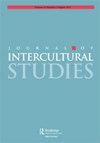Madrid’s Muslim Youth: What do Intersectional Discrimination and Resilience Mean for the Interculturalist Project?
IF 1
Q3 SOCIOLOGY
引用次数: 0
Abstract
Scholarship indicates that Spanish Muslims can face othering marked by migration and securitisation discourses. More recent studies have noted the intersectional discrimination and disadvantage experienced by Spanish Muslim youth, beyond differentiation solely due to perceived migrant background or religious affiliation. At the same time, multilevel Spanish diversity and equality policies and their implementation have attempted to pursue solidarity via recognition of pluralism in various communities, adopting interculturalist language. This work overviews the advent of interculturalist and linked anti-discrimination policy efforts in Spain, and in the Madrid Community and Municipality in particular. Within this context, it presents a recent 2016–2018 qualitative study of self-identifying Muslim youth, which found the majority of participants perceived multiple discrimination, often minimising or dismissing such experiences. It argues that in the Madrid example, Muslim youth discrimination experiences reflect historic, systemic institutional weaknesses and blind spots, particularly with respect to the racialised dimension of their ascribed alterity. Moreover, the participants’ downplaying of and resignation regarding stigmitisation indicates expectations of continued othering. While such strategies illustrate agency, they also speak to the temporal, systemic dispossession in which individuals exercise such resilience. Any authentic equality and inclusion governance or interculturalist efforts must actively address this persistent racialised differentiation.马德里的穆斯林青年:跨文化项目的交叉歧视和弹性意味着什么?
学术研究表明,西班牙穆斯林可能面临其他以移民和证券化话语为标志的问题。最近的研究注意到西班牙穆斯林青年所经历的交叉歧视和劣势,而不仅仅是由于感知到的移民背景或宗教信仰而产生的差异。与此同时,多层次的西班牙多样性和平等政策及其执行试图通过承认不同社区的多元主义,采用跨文化语言来谋求团结。这项工作概述了西班牙,特别是马德里社区和市政府的跨文化主义和相关反歧视政策努力的出现。在此背景下,它提出了最近一项2016-2018年对自我认同的穆斯林青年的定性研究,该研究发现,大多数参与者感受到多重歧视,往往尽量减少或忽视这种经历。它认为,在马德里的例子中,穆斯林青年受到歧视的经历反映了历史性的、系统性的制度弱点和盲点,特别是在他们被认为是异类的种族化方面。此外,参与者对污名的淡化和放弃表明了对继续他人的期望。虽然这些策略说明了能动性,但它们也说明了个体在行使这种弹性时的暂时的、系统性的剥夺。任何真正的平等和包容治理或跨文化努力都必须积极解决这种持续存在的种族化差异。
本文章由计算机程序翻译,如有差异,请以英文原文为准。
求助全文
约1分钟内获得全文
求助全文
来源期刊

Journal of Intercultural Studies
SOCIOLOGY-
CiteScore
1.80
自引率
10.00%
发文量
67
期刊介绍:
Journal of Intercultural Studies showcases innovative scholarship about emerging cultural formations, intercultural negotiations and contemporary challenges to cultures and identities. It welcomes theoretically informed articles from diverse disciplines that contribute to the following discussions: -Reconceptualising notions of nationhood, citizenship and belonging; -Questioning theories of diaspora, transnationalism, hybridity and ‘border crossing’, and their contextualised applications; -Exploring the contemporary sociocultural formations of whiteness, ethnicity, racialization, postcolonialism and indigeneity -Examining how past and contemporary key scholars can inform current thinking on intercultural knowledge, multiculturalism, race and cultural identity. Journal of Intercultural Studies is an international, interdisciplinary journal that particularly encourages contributions from scholars in cultural studies, sociology, migration studies, literary studies, gender studies, anthropology, cultural geography, urban studies, race and ethnic studies.
 求助内容:
求助内容: 应助结果提醒方式:
应助结果提醒方式:


